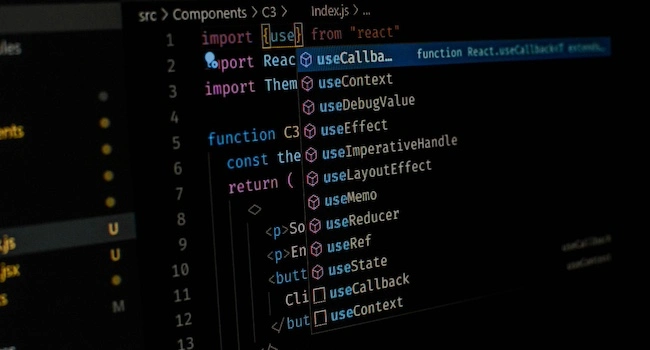How to Hire a Developer: Ultimate Guide
Learn how to find and hire the right developer for your project with our ultimate guide, covering key tips and strategies.

Table of Contents:
Let's face it, hiring dedicated developers is no easy task. It is even harder for small startups that have to compete with the large enterprises for talent that is already scarce. As a result, many struggle with how to hire a developer in the local market.
This leads many startups and medium sized businesses to outsource the needed talent elsewhere. This is not only cost-effective but also provides the necessary tech skills. In fact, according to the 2023 poll, 83% of small businesses want to increase or maintain their spending on outsourced business activities, indicating an increasing trend. Choosing to outsource the specific talent and looking for skilled personnel, however, raise critical questions: What is the best way to hire a developer with the right skills? What are the key things to look out for and the best options regardless of the size of your company?
The Power of Outsourcing

Before checking essential steps and tips, consider this: the IT outsourcing industry is expected to reach new heights in growth. Actually, according to research, it would reach $171.5B by 2028 with a compound annual growth rate (CAGR) of 5.1%. Yes, outsourcing talent has become common today, but historically, many well-known businesses began with a small workforce and expanded specifically thanks to, and sometimes partly because of, a wide range of services.
If a business is unable to have a full-fledged in-house team of talented developers, that shouldn't stop them from achieving their goals. Teams can find many freelancers and third-party companies on hiring platforms or LinkedIn, allowing them to focus on the core competencies while delegating part of the work to external expertise. You can concentrate on your strategic goals while relying on outstaff to handle non-core activities. Yet, what does 'outstaff' mean?
Outsourcing vs. Outstaffing: What Sets Them Apart?
Outsourcing and outstaffing have similarities, yet they work differently. The main contrast is that outstaffing is recruiting professionals from one business/team to work directly on the project under another business owner's control. Outsourcing, on the other hand, delegates the entire process of web development and project to a third-party business that manages this exact project on its own.
Why It Makes Sense
These trends are expected to continue rising over the next decade. As a result, the IT outsourcing and outstaffing market has seen significant growth and is projected to reach over $540 billion. Teams turn to these solutions for other numerous reasons:
- Lack of Local Talent: thanks to online access, people can find and hire talents all over the globe with great competence and expertise that could be available in the local employment market.
- Growing Demand for IT Expertise: yes, an increasing need for IT skills, profound experience and background, and tech capabilities may not be accessible in-house or cost a lot.
- High Cost Of In-House Teams: it is a quite reasonable point for any business — when you have to save overhead costs while the market is expensive; do not forget you need not only to hire, but train and manage a full-time internal crew.
Having a plan before outsourcing, outstaffing or finding a software developer will help you understand what criteria to use. This leads to more efficient results through the development process.
Step 1: Understanding Your Needs and Making a Project Scope
Before you hire a developer it is crucial to understand the needs of your company, mainly focusing on your project or product management. Each company is unique, so there isn't a one fits all model approach for hiring developers. For instance, you may already have a team but lack specialists, you need to hire just one full-time developer for a one-time task or you require a whole team that will focus on the entire project development.
"Trying to manage a project without project management is like trying to play a football game without a game plan." — Karen Tate
Aside from this, your team may not be familiar with that exact tech or it could be a completely new niche to them. So finding someone who is conversant with the tech, platforms, tools and also has that particular experience in the niche can be simply a great addition to your company. So focus first on the next points:
Project Size and Type
The type of project will determine the number of people and talent you require. So you should have a clear idea of the type of app or website your startup wants to launch, its features and benefits. Other crucial information includes:
- Target audience
- Estimated growth
- Core value
With this information, it will be easier to determine the size of the needed team. Also, you can determine whether you need a few dedicated developers or the whole team of IT experts, including product or project manager, designer and so on.
Another factor to consider is the type of project you are working on. Are you making a website and mobile app all together, from scratch or you have a specific design for a determined platform and so on. These important questions can make the search much easier.
Necessary Tech Stack
When considering the tech stack that is required in the development process, the challenge in the most cases, could be that your team may not have the right experience. At this point, the necessary stack usually refers to the combination of technologies, the right latest tools and platforms needed to develop and maintain a specific type of software or system.
The exact basic stack required will depend on your specific project. Here are some example of common components and experts to consider:
- Frontend refers to the user interface and experience; for example, basic frameworks/libraries or front-end developers are React, Angular and Vue.js
- Backend: used for server-side logic and database administration and it could be on Python, JavaScript (Node.js), Java, C# and PHP
- Full-Stack and DevOps Engineer: A hybrid option where a person can handle both front-end and back-end where DevOps oversees the successful deployment and integration of new code
- Mobile Experts: dedicated developers who specialize in iOS, Android and cross-platform programming
- Databases are used to store and manage data, for example, SQL databases include MySQL, PostgreSQL and Microsoft SQL Server
- Artificial Intelligence (AI) Experts: professionals specializing in machine learning, natural language processing, and predictive analytics, using frameworks like TensorFlow, PyTorch, and scikit-learn.
- Crucial systems like Git (with platforms like GitHub, GitLab and Bitbucket)
- Development tools that are used to write, test and debug code and much more
Development Stages
When looking at the developer recruitment process, consider how long it would take to complete a project. So you should understand the requirements at each stage. For projects that have already begun, you may not need to hire full-stack developers. Simply add in the relevant software engineers to complete the tasks.
To effectively match remote developers to project needs at various stages, it is important to align skills and their experience level with project demands:
Nina Lubenets, HR Manager at StarNavi: "When hiring developers, it's crucial to focus on both technical skills and the ability to fit into the client's existing team. For example, StarNavi ensures that the developers are not only tech professionals in the niche but also effective in communication and can adapt to different needs and dynamics."
Step 2: Figuring Out an Employment Model to Use
After outlining your goals, it is time to determine how to recruit. The best way to hire dedicated developers is to find a good employment model. There are several options which are:
- Project-based
- Dedicated team model
- Extended
Project based
This is suitable for small projects. It is cost-effective due to the high demand for developers. This involves outsourcing an entire IT team to work on a project. This is done from planning to launching.
It also works well because the amount to pay junior or senior developers is fixed. However, it requires setting predetermined parameters which leaves little to no room for making changes later on. So you should have a perfect idea of the project and its lifecycle from planning till it is launched.
Dedicated Team
If you are not completely sure about your project, then this model may prove to be useful. The team is made of dedicated developers that are solely focused on designing and creating your app or website. They will work for your company for a set time until the work is complete. They provide feedback at each stage. This also allows you to make changes along the way.
Extended Team
In cases where you already have an in-house developer and need extra skills, hiring an extended team is a great option. It simply means getting people to fill in the gaps that your company doesn't have. In most cases, it means getting specialists. While these join your team, it is in-house designers that will supervise the work being done on projects.
Step 3: Determining Where to Outsource Talent
Figuring where to find the right skills can make a huge difference especially when it comes to additional costs. There are several factors to consider when hiring remote dedicated developers:
- Language barrier
- Time zones
- Technical proficiency
- Productivity
- Costs
Some countries have lower rates per hour and this may be attractive for many startups. The best approach is to pick dedicated developers with whom you can easily communicate. They should have great skills and the rates should be affordable.
Some Eastern European developers offer great talent at affordable rates. For instance, you can hire an expert for as little as $20-$100 per hour. Prices may vary depending on the experience level, English speaking level and requirements of a project.
Step 4: Researching Top Platforms
Searching for specialists can be a daunting task. It takes a lot of time and patience. It is quite overwhelming especially if you don't know where to search. Currently, there are so many online websites that help you to hire freelance developers. Some great options to consider include:
- Clutch and LinkedIn
- Freelancer and Upwork
- Communities: Reddit and GitHub
- Guru and Gun.io
- Dice, Indeed or WeWorkRemotely
- CodersCrew and WebDevNation
Searching Results
If you don't want to go through the stress, then hiring an agency could be helpful. However, for startups, it is recommended to search for talent on your own. This helps you save on extra costs. Determine what payment model to use when searching. It can either be on an hourly abscess or on completed tasks. These search platforms have filters that you can apply to speed up your search. For instance, if you want to hire a Python developer search by:
- Hourly rate
- Location
- Hours available
- Skill set
Step 5: Verifying Skills
Understanding your needs is a step you can't skip. If you want, for example, to hire React offshore developers, it is important to verify that the candidates have the necessary skill set for your project and requirements. Once you have found potential talent, you should counter check that they can deliver what your company needs.
There are various ways of determining if freelance developers are legit or whether the company you wish to outstaff is reliable. This includes:
- Get feedback from previous clients
- Check testimonials
- Look up their profile on LinkedIn
- Check case-studies
- Check their social media
Important Details
Do the same when hiring larger teams. For companies that outsource IT specialists, look at their website and client reviews. Important details to not overlook include:
- Type of previous projects
- Duration
- Challenges
- Solutions
- Costs
Aside from this, you can also check on reputable sites for feedback. These sites allow dedicated developers to share their work, write reviews. If you are looking for certain experts like designers, you can use platforms such as Behance and Dribble.
Step 6: Interviewing Potential Candidates
A hire is not complete without a thorough interview process. Doing this gives you a chance to get additional information that may not be available on a website. For example, you may want to know the strengths in details or any challenges and the solutions used in previous work. Try to assign a test task to check the skills online.
“Outsourcing and globalization of manufacturing allows companies to reduce costs, benefits consumers with lower-cost goods and services, causes economic expansion that reduces unemployment, and increases productivity and job creation.” – Larry Elder.
An interview gives you a better picture of what to expect. It is also a great opportunity to discuss your project and inform the candidate of your expectations. You can use it as a way to identify whether experts have the communication skills. Make sure that you use a language that both parties can clearly communicate in. It sets precedent for future communication between your team.
Some important developer interview questions to ask include
Writing down a list of questions before an interview will guide you so that key information is not missed. The list can be modified to suit what you are looking for. Try to interview 3-4 candidates and then choose the best one. It is always a good sign when a candidate asks questions. Basic questions you should not miss:
- Technical Skills and Experience, for example, questions about the recent project a person worked on
- Problem-solving and Analytical Skills, for example, how an expert deal with tight deadlines and how they address challenging issues, providing example from the previous experience
- Teamwork and Communication, for example, how a person manages comments or criticism about work or whether they fit your company culture
- Cultural Fit and Soft Skills, for example, what inspires them at work and what are they looking for in the future role
- Questions for Candidates to Ask: do not forget to ask if a person has any questions regarding your development team or the software projects that you will be working on
Step 7: Starting Working Processes
Once you have the desired tech talent, it is time to commence developing your solution. Make sure that you clearly state the conditions at the beginning. Both parties should agree with the terms of the contract. Things to state include:
- The project name
- The duration of the project
- Working hours
- Payment mode
- Rate per hour
- Project requirements
- Timeline
- Reporting and so on
Top Mistakes to Avoid
It is important to do your due diligence when you hire Python developers. It is easy to make mistakes especially if it is your first time. Here are some things to avoid to ensure you get the best results.
1. Not Vetting Candidates
Rushing to hire someone without checking if their profile is legit will lead to disastrous results. For example, do the back-end developers have in-depth skills required for this task? You need to make sure that candidates understand the peculiarities of a project and can deliver the right services.
A great way to ensure this is done meticulously is by having a senior expert on your team. This person can evaluate each candidate and provide an accurate opinion based on the interview and developers profile.
2. Focusing Solely on Tech Skills
While a lot of emphasis is placed on finding someone with the right tech talent, do not overlook soft skills. Important soft skills that a candidate should possess include:
- Communication
- Teamwork
- Motivation
- Time management
Communication and collaboration skills are crucial for team projects. A team should be able to communicate with each other and share opinions. This creates room for growth and improvement.
3. Using a Passive Approach
Do not wait for talented developers to respond to your job offers. It is better to look for talent actively on platforms and other channels. Once you find some good prospects, contact them and schedule an interview. Male sure to track their work and any current project as it gives you a better idea on what skills they possess.
Taking an active approach as well as a passive one will yield the best outcomes. It puts you in a better position of finding the best experts to work on an app.
How the Right Developer Makes a Difference
At StarNavi, the goal is to connect companies with experienced developers who can improve projects. Here’s how our expertise in outstaffing has made a significant impact on one of our customer’s projects: TheOutplay. First of all, TheOutplay is a leading digital advertising company known for its video content management platform. This platform enables users to host, playback, download, edit and share videos across various channels, facilitating effective content distribution for marketing goals.
TheOutplay, celebrated as the Best Video Distribution Platform at the Digiday Video Awards Europe 2017, benefits from a vast video library, smart widgets with a semantic engine, and a dedicated audience. When TheOutplay needed functional enhancements for their app, we identified specific needs and further:
- Defined project requirements to find dedicated developers with the exact skills;
- Found relevant expertise for a Python-based software application, and provided two skilled developers;
- Evaluated long-term potential and looked for candidates who can contribute to long-term projects;
- Collaborated effectively with existing teams for ongoing relationships.
Key aspects of our involvement included:
- Targeted Enhancements: the developers implemented crucial features and optimizations to enhance app performance and UX/UI experience.
- Long-Term Collaboration: the partnership with TheOutplay extended over a significant period, reflecting the productive nature of the engagement.
Final Thoughts
Finding the right skills is important when managing a software development project. For startups, it can be quite expensive to get an inhouse team. Outsourcing then becomes the best option. When you hire offshore talent, it not only saves you from huge expenses but helps you bring your project to life.
With the above tips, it should be easier to find dedicated developers. Remember that you are not limited by the size of your team. All that you need is to outsource or outstaff the necessary talent. It all starts with getting an understanding of what your company needs and setting clear goals around that. Most importantly, you can now easily hire Django developers or Python to work on your team, saving on the expenses associated with a full in-house team. Get the skills you require to design and launch your project efficiently!







